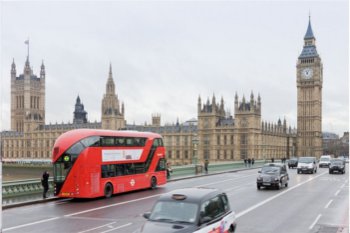Here in Britain, we can certainly devise some controversial transport schemes but when it comes to boondoggles, white elephants and generally bad ideas, we can’t really compete on a global level. Here are our top five.

The Boris boondoggle
1) Trains that don’t fit
While Britain has the wrong kind of snow, France easily trumps us with the wrong size of train. In 2014 there were red faces at the Société nationale des chemins de fer français (SNCF) after it emerged that 2,000 new trains it ordered at a cost of £12.1bn were too wide for many regional platforms.
According to the BBC, The error seems to have happened because the national rail operator RFF gave the wrong dimensions to train company SNCF. Transport Minister Frederic Cuvillier blamed an ‘absurd rail system’ for the problems: ‘When you separate the rail operator from the train company, this is what happens.’
2) Tilting at windmills
Spain’s Ciudad Real La Mancha Airport, south of Madrid is the whitest of white elephants and one of the most notorious emblems of Spain’s economic crash. It cost €1bn to build and could handle 10m travellers per year. It opened to international flights in 2010 and shut two years later. Last year it was sold for €10,000.
The airport was previously named after Spain’s most famous literary figure, Don Quixote, who pointlessly tilted at windmills. It also features in the Almodovar film I’m so excited as a fraudulent boondoogle engineered by one of the plane’s passengers.
3) Such a bad idea it changed the system
According to Wikipedia ‘a boondoggle is a project that is considered a useless waste of both time and money, yet is often continued due to extraneous policy or political motivations’. Alaska’s notorious ‘bridge to nowhere’, which was finally killed off last year, seems to meet the description perfectly.
The $400m project to build a bridge linking the city of Ketchikan in the far southwestern corner Alaska and the airport that serves it became notorious as an example of Washington ‘pork’, where members of Congress demand benefits for their home states as the price for supporting national legislation. According to the Washington Times the massive voter outrage it caused forever changed the way the government does business.
4) Nothing that happens in Britain, ever
We don’t really know how to do bad transport ideas in this country. Both the deregulation of buses and privatisation of the railways have been roaring successes, while the government’s £250m pothole fund has won near unanimous praise within the highways sector.
Now that he has finally left the building, London’s former mayor Boris Johnson deserves special mention. His ‘Boris bikes’ nearly covered their costs, ‘Boris buses’ were totally fault-free and the cable car has people queueing up to use it. Sadly, Boris’ grand plans for a series of tunnels in the capital seem to have left the building with him.
5) Let’s cause a traffic jam
Our final entry seems to meet the literal description of a snafu – and is the exception to this list – in that it was a deliberate snarl-up. In 2014 New Jersey governor Chris Christie sacked top aide Bridget Anne Kelly after she was accused of deliberately arranging traffic jams.
Documents suggested that Kelly closed two lanes at the George Washington Bridge in retribution against the mayor of Fort Lee, Mark Sokolich. ‘Time for some traffic problems in Fort Lee,’ Kelly wrote to David Wildstein, a Christie appointee, shortly after Sokolich announced his support for Christie’s opponent in his re-election bid.
Register now for full access
Register just once to get unrestricted, real-time coverage of the issues and challenges facing UK transport and highways engineers.
Full website content includes the latest news, exclusive commentary from leading industry figures and detailed topical analysis of the highways, transportation, environment and place-shaping sectors.
Use the link below to register your details for full, free access.
Already a registered? Login